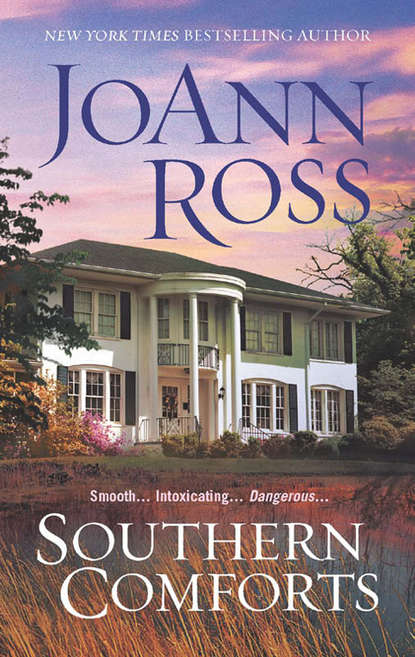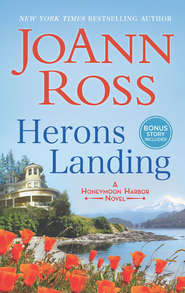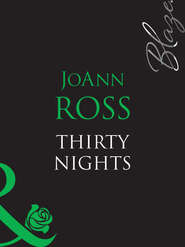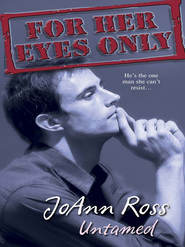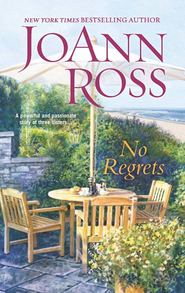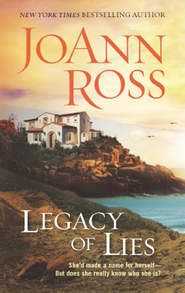По всем вопросам обращайтесь на: info@litportal.ru
(©) 2003-2025.
✖
Southern Comforts
Автор
Год написания книги
2018
Настройки чтения
Размер шрифта
Высота строк
Поля
“I’d planned to check into a hotel,” Chelsea hedged as they made their way through the passengers crowding the terminal.
When Mary Lou had assured her all the arrangements had been made, she’d conveniently withheld this vital bit of information. Chelsea decided she and her agent were going to have to have a little chat when she returned to New York.
The friendliness momentarily disappeared from the assistant’s eyes, leaving behind the hard edge Chelsea had witnessed in the greenroom. “That’s certainly not necessary. Besides, Ms. Scarbrough insists you stay with her.”
“Then I’m afraid Ms. Scarbrough’s going to be disappointed.”
Dorothy gave her a long, thoughtful look. Then, apparently recognizing tenacity when she saw it, shrugged her acquiescence.
“Raintree has a lovely old inn. We’ll stop there on the way to the house.” That matter settled, Roxanne’s assistant turned to more practical concerns. “Let’s retrieve your luggage, then we can be on our way.”
“We can skip the baggage claim.”
“Surely you brought more than this single bag. And your—uh—purse.”
Chelsea almost laughed at the disparaging look Dorothy gave her well-worn leather duffel bag. The same bag her mother had once declared to resemble a pregnant sow. “It’s all I need. Since I’m not going to be here all that long.” Chelsea figured it would probably take twenty-four hours, tops, to confirm that there was no way she would be able to work with Roxanne Scarbrough.
“Oh, dear.” Dorothy’s pale hazel eyes held little seeds of worry. “Ms. Scarbrough was expecting you to stay at least the week.”
“It appears this is Ms. Scarbrough’s day for disappointments.”
Dorothy gave her a judicial sideways glance. “Do you know, I believe we may have misjudged you,” she murmured. “I’m getting the impression that you’re a great deal tougher than you appeared the morning we met in New York.”
“Unlike your employer, appearing on national television isn’t exactly a normal, everyday occurrence for me.”
“Ms. Scarbrough certainly has a great deal of media experience,” Dorothy agreed mildly. “In fact, a television crew is in Raintree, taping a documentary on her career.”
An autobiography and a documentary. Chelsea couldn’t decide whether to be appalled or impressed that the woman whose sole claim to fame was arranging flowers and setting luxurious lifestyle standards no mortal woman could possibly hope to achieve could have been put on such a lofty pop culture pedestal.
The setting sun stained the sky over Savannah the hue of a ripe plum. The air was perfumed with the scent of flowers and a hint of salt drifting in from the marshes surrounding the city, and the sea, which was twelve miles down the winding Savannah River. The lovely old houses with their great verandas and lacy railings and fences reminded her of New Orleans.
“This is truly lovely,” Chelsea said as they drove through the city.
“It is, isn’t it?” Dorothy said. “There’s a local saying that Savannah is a lady who keeps her treasures polished for the pleasure of her guests.
“The city was originally established in 1733, by James Oglethorpe, to practice agrarian equality. The idea was that the goods the settlers produced would be sent back to enrich the British Empire.
“He laid the city out in squares, on the Renaissance ideal of balance and proportion. It was the loveliest city in the South. And one of the few that managed to save its grand old homes from General Sherman.
“You know, of course, that Sherman virtually destroyed Atlanta on that sixty-mile-wide path of destruction to the sea.”
“Even we native New Yorkers have seen Gone With the Wind,” Chelsea said with a smile.
“Hollywood couldn’t even begin to describe the horror that no-account Yankee wrought on our people,” Dorothy muttered bitterly, as if the Civil War had just ended yesterday. “By the time he reached Savannah, it was obvious diplomacy was in order. A delegation of businessmen rode out to meet him and offered him one of the finest houses in the city as his headquarters.
“Fortunately, the general accepted the offer and moved in. Which saved Savannah from the fate of Atlanta.
“During the 1950s the city fell into decay,” Dorothy continued her travel guide spiel. “Wrecking crews were demolishing the mansions for their handmade Savannah gray bricks to build suburban homes, destroying what Sherman had left standing a hundred years earlier.
“Finally, civic pride rose to the rescue. And now Savannah’s inner city is one of the largest national historic districts in the nation. The people repolished the lady’s jewels and tourism is booming.”
They left the city, driving past the mysterious marshlands, along the Savannah River through a backcountry bursting with tropical lushness. Dorothy pointed out fields of tobacco, rice, soybeans and peanuts.
They’d been driving for about thirty minutes when they came to a small community of unhurried, shady streets. The green-and-white sign at the town limits welcomed visitors to Raintree, Georgia, est. 1758. Population 368. Gateway to the Gold Coast.
Although Chelsea thought that the slogan might be overstating the town’s importance, she could not fault its beauty.
The buildings lining the main street were draped in a dreamy embrace of oak and moss, surrounded by an explosion of fiery pink azaleas. White-pillared gas lamps with round white glass globes were beginning to flicker on.
They passed the commercial center, two blocks of stucco-covered brick buildings with wide awnings that made the town look as if time had stopped there. A pair of old men in bib overalls played checkers in front of a store, as Chelsea suspected old men had been doing in that location since the town was established in the 1750s. In the window, signs advertising a sale on six-packs of Dr Pepper and a new three-day checkout period for the latest videocassettes provided a faintly jarring note to the languorous scene.
In the heart of the town—surrounded by a wide square of diagonal parking spaces—a courthouse glistened as white as new snow. A carillon of chimes pealed out the hour on the towering clock. It was, Chelsea noted with a glance down at her watch, ten minutes late.
“That’s Colonel Bedford Mallory,” Dorothy said, pointing out a marble statue of a confederate soldier astride a horse. “He’s a local boy who distinguished himself under General Johnston at the Battle of Kennesaw Mountain. Every Confederate Memorial Day, the ladies of the Raintree Garden Club decorate the statue. They also decorate the graves of both confederate and union soldiers in the cemetery.”
Once again, Chelsea had the strangest feeling she’d stepped back in time. “Do you have any industry in Raintree?”
“Industry? Like a carpet mill? Or furniture factory?” When Chelsea nodded, Dorothy shook her head. “No. Although we’re on the river, we never really became an industrial center. It’s still mostly agricultural, although more and more of the farmland is being sold off to build homes for people who work in Savannah, but want to escape the hustle and bustle of the city for the small-town life.”
Chelsea decided not to mention that being accustomed to Manhattan, Savannah had seemed far from bustling. “Well, Raintree certainly looks like a tranquil town.”
So tranquil, Chelsea mused, that if she did decide to stay, it might be difficult to get into the proper mood to work on her novel. If she’d ever seen a place less likely to harbor thoughts of murder and mayhem, it was this one.
“It’s quiet,” Dorothy agreed, “but like all small towns, it does have its hidden depths. And its secrets.”
“I love secrets,” Chelsea confessed cheerfully as Dorothy pulled the car up in front of a lovely two-story building. The red bricks had faded over the years to a soft pink, but the shutters framing the windows were a bright fresh white. The windows glistened, brilliant red azaleas and creamy magnolias overflowed clay pots on the wide and inviting front porch.
“Oh, this is wonderful!” Chelsea said as she entered the cozy lobby that reminded her more of a private home than a hotel. The scent of fresh-cut flowers perfumed the air.
“Welcome to the Magnolia House,” the man behind the hand-hewn counter greeted her. He looked around thirty, with friendly blue eyes and tousled blond hair. His soft drawl gave evidence of local roots.
After introducing himself as Jeb Townely, her host, he filled out the paperwork quickly, then carried her bags up to her second-floor room.
“I hope you’ll be comfortable here,” he said as he opened the door. More flowers bloomed in vases on a small cherry writing desk and atop the dresser. There was a tray with two glasses, a bottle of mineral water and a tin of cookies on the table. The bed was canopied, and like the rest of the furniture, appeared to be a genuine antique.
“I think I may just stay forever.” Chelsea could feel the tensions of her day melt away as she drank in the cozy ambiance of the room.
“I know the feeling.” His smile deepened to reveal the dimples on either cheek. “Magnolia House has been in my family for nearly two hundred years. After three failed peanut crops in a row, I decided the green thumb possessed by all the other Townelys just passed me by. So, I opened the house up as an inn, and—” he rapped his knuckles on the desk “—so far, so good.”
“I don’t know a thing about the hotel business, except for having stayed in too many over the past few years. But I think you’ve done a marvelous job.”
“That’s real nice of you to say, Miz Cassidy.” He handed her the key. “If you need anything else, I’ll do my best to oblige. Just dial the operator. Anytime day or night.”
“Don’t tell me you operate the switchboard, too?”
“No. I hired a nice widow lady who likes a chance to talk to people,” he said. “But, since I live here, I’m usually around.”
“Doesn’t that make for a twenty-four-hour day?”





